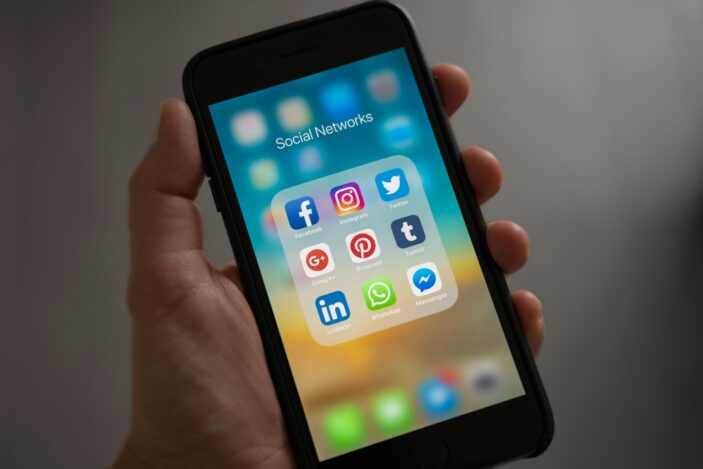
Social media has transformed many aspects of our lives, including how we communicate. Platforms like Facebook, Twitter, Instagram, and TikTok have not only changed the way we interact but also how language evolves. From memes and hashtags to emojis and abbreviations, social media has introduced new elements into our language and reshaped traditional forms of communication. Let’s explore how the internet influences language evolution, making the concept accessible and engaging for everyone.
The Speed of Linguistic Change
One of the most notable impacts of social media is the rapid pace at which language evolves. In the past, language changes might take years or even decades to become mainstream. However, social media has accelerated this process. A new slang term or phrase can go viral within days, reaching millions of people across the globe. For example, terms like “lit,” “savage,” and “mood” gained popularity through social media and are now commonly used in everyday conversation. According to this blog post, 94% of Americans use slang in some form, with over half using it in most conversations.
This speed is facilitated by social media’s viral nature. Memes, tweets, and posts spread quickly, bringing new words and expressions into common use almost overnight. This rapid dissemination means that linguistic innovations are not only more frequent but also more widespread.
Informal Language and Its Impact
Social media platforms are designed for informal communication, encouraging users to be casual and creative with their language. This has led to the widespread use of abbreviations, acronyms, and slang. Terms like “LOL” (laugh out loud), “BRB” (be right back), and “OMG” (oh my god) have become so ingrained in our daily language that they are often used in professional and formal settings as well.
The shift towards informal language on social media has influenced traditional communication styles. In emails, professional documents, and even news articles, elements of social media language are becoming more common. This blending of formal and informal styles reflects how social media has impacted not just personal but also professional communication.
The Role of Visual Communication
Social media has also introduced new ways of conveying meaning through visuals. Emojis, GIFs, and memes are now integral to online communication. These visual elements add a layer of expression that text alone may not convey. For instance, an emoji can change the tone of a message, adding humor, sarcasm, or warmth.
The integration of visuals into communication has led to the creation of new forms of language. Emojis, for example, have their own lexicon and syntax. A heart emoji might express love or appreciation, while a laughing emoji might indicate that something is funny. This visual language supplements and sometimes even replaces traditional text-based communication.
Global Linguistic Exchange
Social media connects people from different cultures and linguistic backgrounds, leading to a rich exchange of languages and dialects. As people from various parts of the world interact, they introduce and adopt new words and phrases. This cross-cultural exchange enriches our language, incorporating elements from different languages and cultures.
For example, English speakers have adopted words from other languages such as “déjà vu” (French) and “sushi” (Japanese). Similarly, social media users might borrow terms from other languages and integrate them into their own communication. This blending of languages reflects the global nature of social media and its role in shaping modern language.
User-Driven Linguistic Innovations
One of the most exciting aspects of social media is its ability to democratize language creation. Traditionally, linguistic change was driven by a few influential figures or institutions. Today, anyone with a social media account can contribute to language evolution. Users create new words, phrases, and hashtags that can quickly gain popularity.
For instance, hashtags like #ThrowbackThursday or #FOMO (fear of missing out) originated from user-generated content on social media. These innovations can capture contemporary trends and cultural phenomena, making language more relevant and dynamic.
Social Media and Cultural Shifts
Social media is a reflection of cultural and social trends. As societal attitudes and issues evolve, so does the language used to discuss them. Social media platforms provide a space for people to express their views on social movements, political issues, and cultural changes. This, in turn, influences language by introducing new terms and expressions related to these topics.
For example, terms like “cancel culture” and “social justice warrior” have emerged from discussions on social media. These expressions capture contemporary attitudes and debates, reflecting how language adapts to cultural shifts.
The Role of Privacy and Security
Privacy and security are also important considerations in the context of social media and language evolution. As users share more personal information online, concerns about privacy have grown. Many individuals are becoming more aware of their online footprint and need secure communication channels. This awareness can impact how people use language online, with increased emphasis on protecting personal information and being cautious about what they share.
——-
Social media has undeniably transformed the landscape of language evolution. From the rapid spread of new terms to the integration of visual elements and the blending of global languages, social media shapes how we communicate in profound ways. It has democratized language creation, reflected cultural shifts, and highlighted the importance of privacy and security. As social media continues to evolve, so too will the language that we use, reflecting the dynamic and interconnected world we live in.
Understanding these changes helps us appreciate the ways in which social media influences our daily communication and how language continues to adapt in the digital age.
